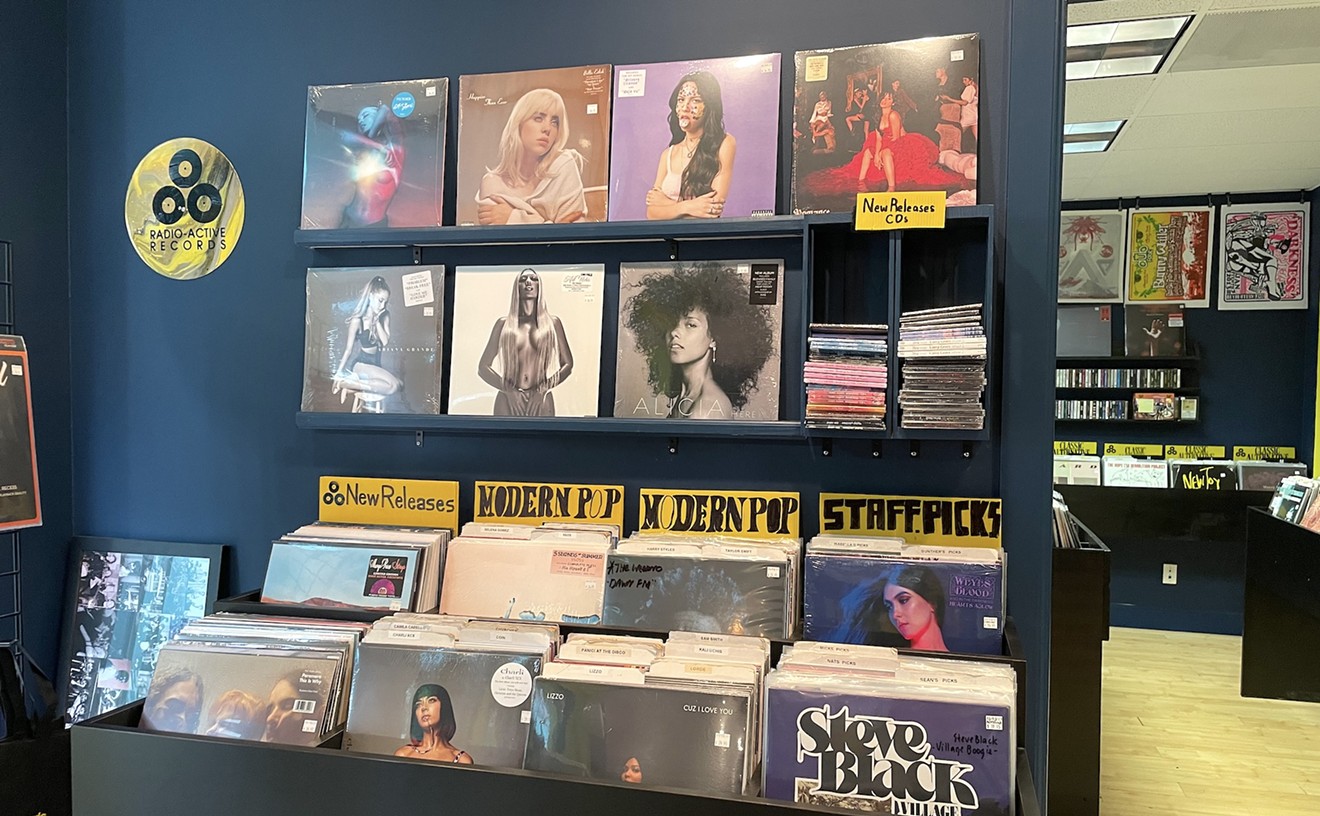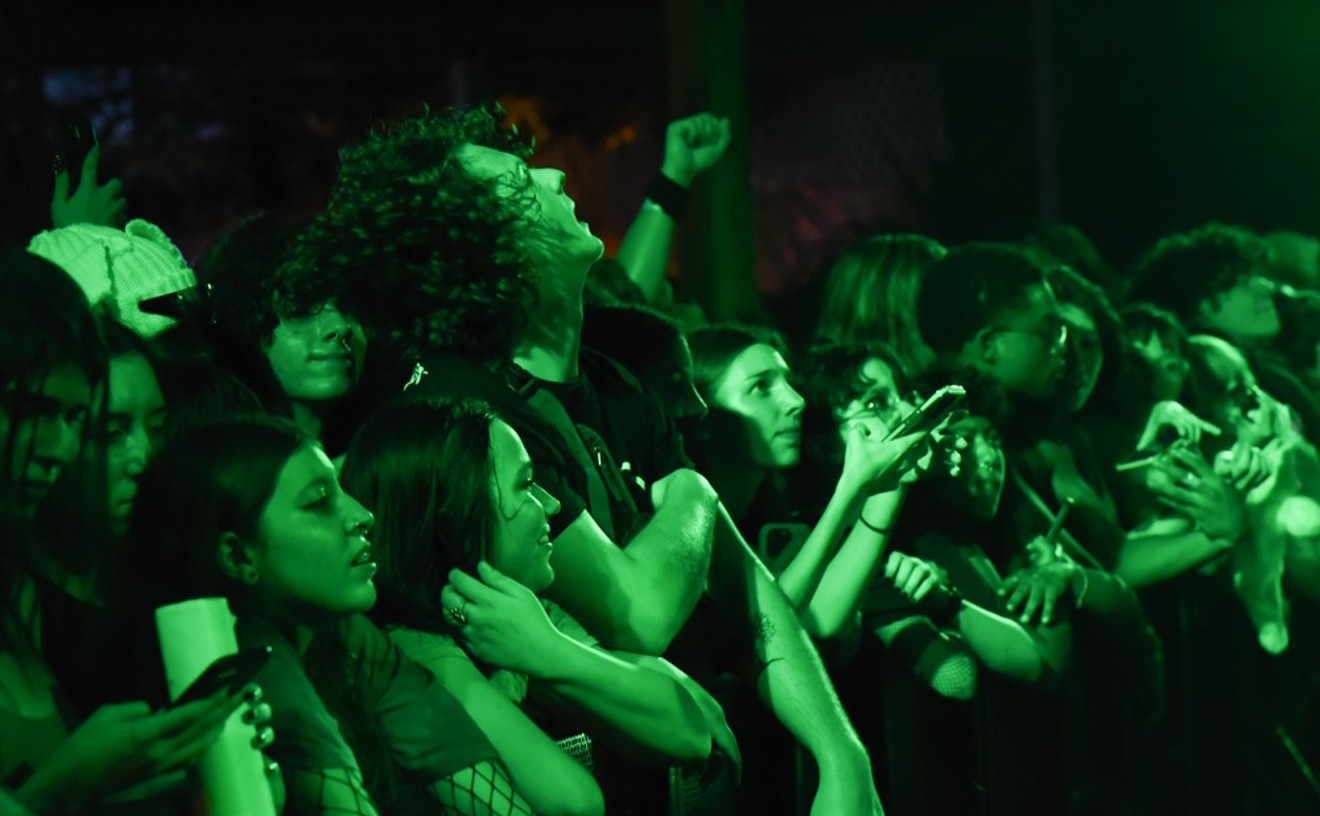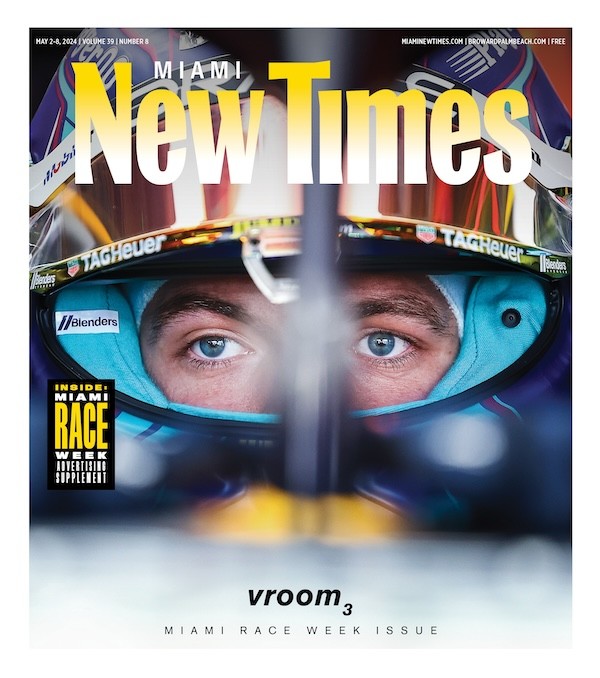Tony Bennett On Holiday: A Tribute to Billie Holiday
(Columbia)
Tony Bennett has nearly always been an anachronism. His career began just moments before his brand of sophisticated, Tin Pan Alley melody was bowled over by the passionate rhythms of rock and roll. A half-century later, with all of his most popular contemporaries either washed up or dead, he finds himself the last of the great jazz-pop singers, the only still-mighty giant within a tradition that has included revered names such as Sinatra, Eckstine, Vaughan, Crosby, Fitzgerald, Cole, and Holiday.
Bennett's new Billie Holiday tribute demonstrates another way in which he stands apart. While most crooners and swingers are known for their songs of heartbreak and loss, Bennett has consistently been compelled to sing songs of unabashed hope -- or to discover the redeeming nuggets in seemingly melancholy compositions. His best-known hit, "I Left My Heart in San Francisco," is about a man who would gladly return to his home and his love, and he has routinely recorded pop standards of unironic joy like "Smile," "Keep Smiling at Trouble" and "The Best Is Yet to Come." Even when he tackles inherently sad songs (like concert staple "When Joanna Loved Me"), he chooses those that emphasize the sweet memories he swears he'll never lose. On Bennett's recent Sinatra tribute album, even the weeper classic "One for My Baby" gets turned into a contented, cocky kiss-off.
From the throat of a lesser singer, this optimistic approach could easily come across as superficial, if not downright silly, but throughout On Holiday Bennett sings so remarkably that he makes you gulp, face beaming and heart swelling. His classy rasp turns out to be the perfect fit for the more optimistic Holiday standards included here, and Ralph Sharon's piano-only accompaniment on the giddy and goofy (respectively) "What a Little Moonlight Can Do" and "Me, Myself and I," as well as on the nearly-Zen "Laughing at Life," swings more than well enough to get things cooking (even if it isn't the equal of Lester Young's sax on many of Holiday's original versions).
The best moments, though, come when Bennett reinterprets Holiday's darker repertoire. Coming from a male singer, "When a Woman Loves a Man" could easily look down its nose at women and the stupid things they'll do to keep a man, but -- ever the gentleman -- Bennett simply sounds as if he empathizes, as if he knows all too well what it's like to be heart-over-brain in love. Instead of using Holiday's earthier setting, Bennett fills his sweet-stringed "Willow Weep for Me" with a delicate, ethereal quality that's almost magic. In truth, this entire disc is magical. On Holiday is as good an album as any other Bennett has recorded in 25 years. Even the necrophilic closing cut, with Tony's voice electronically added to Billie's on "God Bless the Child," can't break the happy spell.
-- David Cantwell
DJ Shadow
Endtroducing ...
(MoWax/ffrr)
Josh Davis, a.k.a. DJ Shadow, is a 24-year-old kid from the California boonies (the city of Davis, to be exact, where the local branch of the University of California is an agriculture school). "There was no one there to tell me what was right and what was wrong," he told the Los Angeles Times recently. "I remember buying Boogie Down Productions' 'South Bronx' and 2 Live Crew's 'Throw the D' and liking 'D' better because the scratching was so fresh, and there was so much energy on the record."
Such heresy might have gotten Josh Davis driven from the hip-hop scene in San Francisco or Los Angeles, but in his rural hideaway he was limited only by his imagination, which, it turns out, is pretty much unlimited. Since his first underground tape drew nationwide notice in 1990, he's evolved a sound he calls "hardcore abstract hip-hop." It's a return to the old-school days when the DJ was king -- DJ Shadow uses only samples, and adds no vocals to the bits and pieces of history drawn from his vast vinyl collection.
The result is a sort of ambient music, although it's nothing like the aural wallpaper that term often denotes. DJ Shadow's soundscapes have a bite and an attitude to them. Even when you're not in your car, it's cruising music that makes a statement in the way that driving a hydraulic-hopping lowrider late at night down the main street of Davis would. A lot of it's in the rhythm section, as hard turntable scratches disrupt a dreamy flow, drum machines lose their mind when you least expect it, and "The Number Song" ends with a "drum solo" that could very well be Forties powerhouse Gene Krupa.
Some sections are like soundtracks to movies Josh Davis seems to have in his head, some indulge in the stateliness of classical music, others trace sonic lines so distinct you'd swear you're listening to a live band. Only the Shadow knows why it all fits together so well, but one listen will convince you that he's right.
-- Lee Ballinger
Yo-Yo Ma/David Zinman
Premieres
(Sony Classical)
"Another victory for American music," conductor David Zinman said after completing this CD on January 9, 1996. The victory almost never came; Philadelphia had been paralyzed by a blizzard early the previous morning, and the day's recording sessions were canceled. It was only after anxious rescheduling that Zinman, cellist Yo-Yo Ma, and the Philadelphia Orchestra convened to complete recording new cello concertos by Richard Danielpour, Christopher Rouse, and Leon Kirchner -- three central men of contemporary American classical music.
Why was this a big deal? The answer is simple: Contemporary classical music is hard to sell, and major labels such as Sony must usually make a handful of crossover discs or re-recordings of superfamiliar warhorses to finance a single project like this. One glitch -- be it a blizzard, a missed flight, or a case of the flu -- could persuade the label to shelve the project, sometimes permanently. But not this time; Sony had already invested too much. They had Ma, America's preeminent cellist and a powerful draw for aficionados. They had a date with the Philadelphia Orchestra (whom their predecessor, Columbia, had on contract 30 years ago and sadly lost). And they had all three composers in attendance, lending their advice to the recording sessions. This CD was going to get made, no matter what.
The music is challenging and well worth the effort; the playing, particularly Ma's transformation of the most forbidding forests of notes into melody, is exhilarating. Danielpour's concerto pits the soloist against the orchestra in a musical portrait of spiritual intolerance. Rouse's work alternately rages against and mourns the deaths of friends, mentors, and creative inspirations; the language is aggressive and exotic, with glimpses back at music of the Seventeenth Century. Music for Cello and Orchestra, a piece privately commissioned as a 40th anniversary present, is Leon Kirchner's concentrated journey from argument to agreement.
Zinman was right: this CD is a vic-tory -- but not just for American music.
-- Raymond Tuttle
Lazlo Bane
11 Transistor
(Almo Sounds)
Lazlo Bane is my favorite kind of band, and its debut is my favorite kind of album -- an absolute minimum in the bullshit department, great hooks, slinky beats, quirky lyrics. This is Weezer minus the posing.
11 Transistor bolts out of the gate with tunes like "Buttercup" and "1975," which wrap Tim Bright's extra-chunky guitar around the zesty thump provided by bassist Chris Link and drummer Chicken. Songwriter and vocalist Chad Fischer proves his lyrical mettle on the wonderfully vindictive "Wax Down Wings." Between gusts of power-pop guitar, and in a tenor more notable for its phrasing than power, he wails: "You'll never crack my marrow/You're just a fractured ego." "Flea Market Girl" is equally strange and wonderful, an eerie minor-key melody delivered in three-part harmony. This is what Seals & Crofts would have sounded like had they emerged during the grunge era.
Lazlo Bane's ballads are dependably entrancing, built around Fischer's mournful melodies and spiced with just enough rhythmic muscle to keep the proceedings from turning maudlin. "Sleep" and "Midday Train" both sway like delightful lullabies, Bright's acoustic strumming keeping time for Fischer's plaintive warble.
The gutsiest cut of the bunch is "Overkill," the old Men At Work hit from 1983, which is delightfully covered here with the help of that band's venerable frontman Colin Hay (something of a mentor to Fischer). Hay lends his unmistakable rasp to this energetic updating, trading refrains with his protege. The band's playful spirit is best captured on the exuberant opener (and first single) "I'll Do Everything," an irresistible slice of white-boy yearning that finds all four members of the band whistling the melody. "I've tried to learn from God," Fischer deadpans, "'cuz he knows not to make a scene."
Though the members of Lazlo Bane would be the last to press the point, this sentiment makes a perfect credo for the Boston quartet. They're far more interested in making thrilling pop than making any scene.
-- Steven Almond










